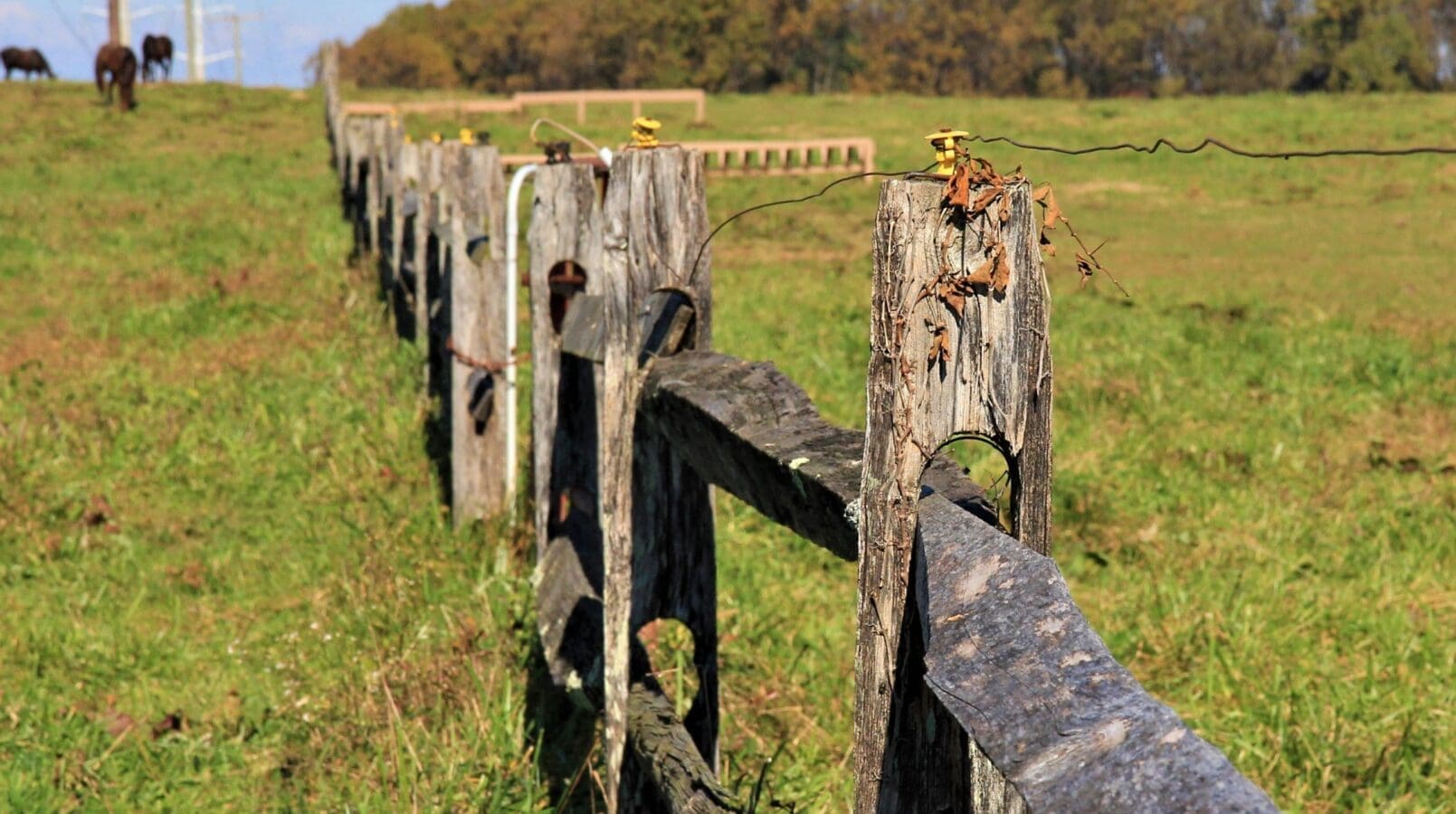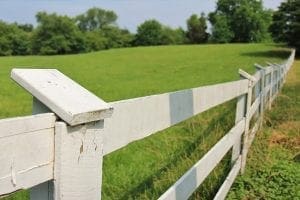
Maryland Property Disputes & Lawsuits
Legal disputes and lawsuits over property rights and real estate are common problems for many property owners in Maryland. Maryland property disputes can include property access/property line disputes (such as fence disputes, quiet title/adverse possession lawsuits, easements concerns, adverse possession matters, tree disputes, and tree damage), property ownership disputes (such as probate disputes, contract disputes, and liability concerns), and property liability disputes (such as trespass of property, property dangers, tree dangers, and direct harm). Generally, Maryland property disputes are very fact specific, and these property disagreements can include various tenants of law. However there are also some common issues related to all types of legal real estate disputes.
Property Line Disputes
Maryland property line disputes generally stem from disagreements between adjoining neighbors about their shared property boundary. A large proportion of these neighbor property line disputes result from a lack of full understanding regarding the accurate and true boundary line between neighboring properties. Often neighbors jointly assume the validity of a visual property boundary line (such as a fence, wall, or trees) that is actually inaccurate according to the true Maryland property records. In fact, disputes can arise between neighbors that have lived for years with differing understandings related to the true properties’ boundary line. In many cases, legal action can be taken to enforce the accurate property boundary lines.
 Additionally, in Maryland, under certain circumstances, an individual can assert the doctrine of adverse possession and quiet title (which relates to adverse possession) to obtain legal ownership of part of their neighbor’s titled property due to that individual’s use of that section of real estate as their own for a prescribed period of time. In Maryland, an action for adverse possession is the specific mechanism that a person who is not the actual owner of real property (1) can use to obtain a valid title to that particular property by the passage of time through their own possession of that particular property over time and/or (2) become immune from a repossession lawsuit initiated by the original property owner. Two specific Maryland code provisions govern adverse possession: Maryland Code, Real Property Article § 14-108 and Maryland Code, Courts and Judicial Proceedings Article § 5-103. Often Maryland adverse possession matters involve fence-line disputes between owners of neighboring properties. A Maryland property dispute attorney can assist property owners with properly addressing these types of problems.
Additionally, in Maryland, under certain circumstances, an individual can assert the doctrine of adverse possession and quiet title (which relates to adverse possession) to obtain legal ownership of part of their neighbor’s titled property due to that individual’s use of that section of real estate as their own for a prescribed period of time. In Maryland, an action for adverse possession is the specific mechanism that a person who is not the actual owner of real property (1) can use to obtain a valid title to that particular property by the passage of time through their own possession of that particular property over time and/or (2) become immune from a repossession lawsuit initiated by the original property owner. Two specific Maryland code provisions govern adverse possession: Maryland Code, Real Property Article § 14-108 and Maryland Code, Courts and Judicial Proceedings Article § 5-103. Often Maryland adverse possession matters involve fence-line disputes between owners of neighboring properties. A Maryland property dispute attorney can assist property owners with properly addressing these types of problems.
Neighbor property line disputes can also simply result from fence disagreements (such as placement, creation, removal, or set-backs), regardless of the presence of adverse possession. Often the placement of fences and the circumstances surrounding fences between properties can cause legal disputes between neighbors. In fact, many Maryland Counties, such as Montgomery County, even have certain legal restrictions on the building of fences on or near property lines. In addition, trees (or other plants) that are located on or near neighboring property line can present a myriad of legal problems. Maryland property owners may, in certain circumstances, have the right to bring or defend themselves in litigation related to dying or damaged trees, trees located directly on a property line, or neighboring trees which have fallen onto their own property. In fact, often disputes related to trees (fallen and in tact) become adverse possession disputes.
Property Ownership Disputes
Maryland property ownership disputes generally stem from issues concerning either agreements related to property ownership or the bequeath of property ownership rights to different parties. In Maryland, to enter into a contract for the transfer of real property the agreement must be in writing. Maryland Code, Real Estate, § 5-103 (“No corporeal estate, leasehold or freehold, or incorporeal interest in land may be assigned, granted, or surrendered, unless it is in writing signed by the party assigning, granting, or surrendering it, or his agent lawfully authorized by writing, or by act and operation of law.”). Despite this seemingly clear requirement, many disputes over ownership are the result of promises or agreements to transfer title of a property to someone in the future. These property ownership disputes are often litigated. Similarly, parties often dispute which individual(s) is/are the legal owner of a property after a property owner has died. In these types of property ownership disputes, the parties often will litigate the intent of the decedent with regard to the ownership of their property interest following their passing. These type of property disputes are generally litigated within the Maryland Orphan’s Court (or the Circuit Court).
Property Liability Disputes
 Maryland property liability disputes are generally the result of either (1) damage resulting from a tree or other item from one’s property causing damage on a neighboring property or (2) damage as a result of someone’s trespass onto, or guests within, a person’s property. Trees and other structures can be damaged by the weather or simply through the passage of time. When such plant or tree damage occurs, trees and other structures can cause damage onto neighboring properties. As a result, liability can exist against a property owner for that damage. Unfortunately, liability is not easy to assess in these situations. Many different factual circumstances can lead to different results related to liability. Maryland, like other states, has carved out specific legal guidelines for assessing such liability. Property owners must also be concerned with damage or injury which can occur to guests or trespassers onto their property. Courts can and will assess liability in certain circumstances when a guest or trespasser is injured on a landowner’s property. A Maryland property dispute and property litigation lawyer can help property owners navigate through these legal issues.
Maryland property liability disputes are generally the result of either (1) damage resulting from a tree or other item from one’s property causing damage on a neighboring property or (2) damage as a result of someone’s trespass onto, or guests within, a person’s property. Trees and other structures can be damaged by the weather or simply through the passage of time. When such plant or tree damage occurs, trees and other structures can cause damage onto neighboring properties. As a result, liability can exist against a property owner for that damage. Unfortunately, liability is not easy to assess in these situations. Many different factual circumstances can lead to different results related to liability. Maryland, like other states, has carved out specific legal guidelines for assessing such liability. Property owners must also be concerned with damage or injury which can occur to guests or trespassers onto their property. Courts can and will assess liability in certain circumstances when a guest or trespasser is injured on a landowner’s property. A Maryland property dispute and property litigation lawyer can help property owners navigate through these legal issues.
Lis Pendens Concerns in Maryland
In Maryland, lis pendens is the legal doctrine where there exists “a pending lawsuit, referring to the jurisdiction, power, or control which a court acquires over property involved in a lawsuit pending its continuance and final judgment.” (DeShields v. Broadwater). Similarly, Black’s Law Dictionary states that a “notice of lis pendens” has the effect of warning all individuals that a specific real estate “is the subject matter of litigation, and that any interests acquired during the pendency of the suit are subject to its outcome.” When such a lis pendens situation or problem occurs with regard to a specific property in Maryland, an individual property owner may have serious problems taking any action regarding the title of the property, including, but not limited to, selling the property, insuring the title to the property, or obtaining a loan on the property. Consequently, significant care must be taken in Maryland to avoid a lis pendens action and/or to have such an action disposed of as efficiently as possible.
Adam Van Grack and Longman & Van Grack’s other litigation attorneys regularly handle different types property lawsuits, fence laws and adverse possession, tree disputes, lis pendens problems, easements, and tree damage lawsuits in many courts throughout Maryland including Montgomery County lawsuits. Specifically, Mr. Van Grack and our Maryland property dispute attorneys have handled property lawsuits in Montgomery County Circuit Court (Rockville, MD), Frederick County Circuit Court (Frederick, MD), Howard County Circuit Court (Ellicott City, MD), Prince George’s County Circuit Court (Upper Marlboro, MD), Baltimore County Circuit Court (Towson, MD), Baltimore City Circuit Court, and Maryland Appeals Courts (Annapolis, MD). If you would like to discuss a Maryland property dispute matter or lawsuit with Mr. Van Grack or a real estate dispute attorney, call Longman & Van Grack today at (301) 291-7156 to schedule a consultation in our Bethesda, Maryland or Rockville, Maryland offices.
